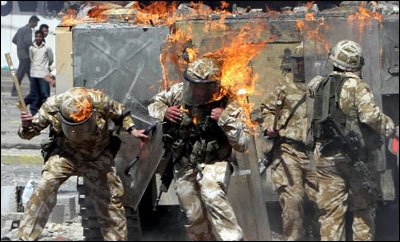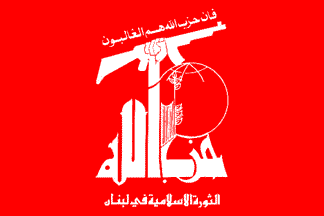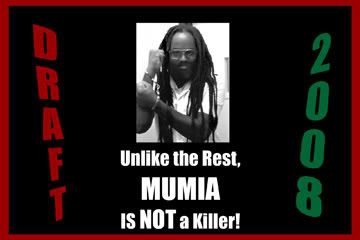British Terror Ignites Basra... Again

Saturday's Beirut Daily Star reports that British Army forces occupying Southern Iraq face intensifying unrest in the restive port city of Basra after "hundreds of British and Danish troops raided Basra early Tuesday to seize policemen suspected of corruption." Five of the fourteen people detained remain in custody "including 'influential' members of the Basra police force's serious crimes and internal affairs units and the criminal investigation agency." The article continues:
On 19 September 2005, the Iraqi Resistance Report reported that one day earlier, "British occupation forces arrested Ahmad al-Fartusi, the Commander of the Jaysh al-Mahdi militia loyal to Shi‘i religious leader Muqtada as-Sadr in al-Basrah on Sunday."
The Guardian added clarity to the extent of these arrests on 20 September when they reported,
In respose to the arrests, "Jaysh al-Mahdi militiamen deployed in the streets of al-Basrah and set fires in car tires, closing the main streets in the city to traffic," the Resistance Report notes, threatening "the British and their stooges with 'events whose outcome would not be good' if al-Fartusi is not released."
 A day later, events came to a head. Reuters reported that two British soldiers from the Special Reconnaissance Regiment "wearing traditional Arab headscarves and sitting in an unmarked car" that contained assault rifles, light machine guns, an anti-tank weapon, radio gear and medical kit were taken into custody after "shooting dead a policeman and wounding another."
A day later, events came to a head. Reuters reported that two British soldiers from the Special Reconnaissance Regiment "wearing traditional Arab headscarves and sitting in an unmarked car" that contained assault rifles, light machine guns, an anti-tank weapon, radio gear and medical kit were taken into custody after "shooting dead a policeman and wounding another."  Al Jazeera reported that the car was "booby-trapped… laden with ammunition and was meant to explode in the centre of the city of Basra in the popular market."
Al Jazeera reported that the car was "booby-trapped… laden with ammunition and was meant to explode in the centre of the city of Basra in the popular market."
Underscoring the secrecy of the captive's mission, the British military "attacked the central jail and destroyed it," breaking out the saboteurs with a "force of more than ten tanks backed by helicopters."
After destroying the compound and freeing the men, Middle East Online reported the British forces were surrounded and attacked by Jaysh al-Mahdi militiamen, who set two tanks ablaze and forced the British soldiers from their tanks, providing shocking pictures to the evening news.
This weeks provokation in Basra, coupled with the increasing warmongering by Western leaders towards Iran indicate that similar confrontations to those described above could intensify in both size and scope. This is especially true in the wake of the announcement made by Sadr during a visit to Tehran that he would side with Iran if Western forces invade.
Provincial council member Munaadhil al-Mayahee said relations would be severed if British forces did not release policemen they are still holding, withdraw their troops from central Basra, and hand over control of security to local authorities.This is not the first time that unannounced arrests have provoked a conflict in Basra between the British occupiers and those they occupy .
"If they keep doing this we will not be able to hold back the reaction of the people of Basra toward them."
"If the British keep on acting like invaders, people here will know to deal with them. The new British commander is a bad man. He is behind all detentions and raids," said Mayahee.
On 19 September 2005, the Iraqi Resistance Report reported that one day earlier, "British occupation forces arrested Ahmad al-Fartusi, the Commander of the Jaysh al-Mahdi militia loyal to Shi‘i religious leader Muqtada as-Sadr in al-Basrah on Sunday."
The Guardian added clarity to the extent of these arrests on 20 September when they reported,
British defence officials said last night that yesterday's violence was provoked by… the British army's arrest on Sunday of about 200 members of the Mahdi army, the militia headed by Moqtada al-Sadr… The arrested men included Sheik Ahmad Majid al-Fartusi, the Basra commander of the group, and his aide, Sajjat al-Basri.In a statement, British forces confirmed that they had arrested "three prominent individuals," asserting that "the operation is the result of an ongoing multinational force investigation that identified individuals believed to be responsible for organising terrorist attacks against multinational forces."
In respose to the arrests, "Jaysh al-Mahdi militiamen deployed in the streets of al-Basrah and set fires in car tires, closing the main streets in the city to traffic," the Resistance Report notes, threatening "the British and their stooges with 'events whose outcome would not be good' if al-Fartusi is not released."
 A day later, events came to a head. Reuters reported that two British soldiers from the Special Reconnaissance Regiment "wearing traditional Arab headscarves and sitting in an unmarked car" that contained assault rifles, light machine guns, an anti-tank weapon, radio gear and medical kit were taken into custody after "shooting dead a policeman and wounding another."
A day later, events came to a head. Reuters reported that two British soldiers from the Special Reconnaissance Regiment "wearing traditional Arab headscarves and sitting in an unmarked car" that contained assault rifles, light machine guns, an anti-tank weapon, radio gear and medical kit were taken into custody after "shooting dead a policeman and wounding another."  Al Jazeera reported that the car was "booby-trapped… laden with ammunition and was meant to explode in the centre of the city of Basra in the popular market."
Al Jazeera reported that the car was "booby-trapped… laden with ammunition and was meant to explode in the centre of the city of Basra in the popular market."Underscoring the secrecy of the captive's mission, the British military "attacked the central jail and destroyed it," breaking out the saboteurs with a "force of more than ten tanks backed by helicopters."
After destroying the compound and freeing the men, Middle East Online reported the British forces were surrounded and attacked by Jaysh al-Mahdi militiamen, who set two tanks ablaze and forced the British soldiers from their tanks, providing shocking pictures to the evening news.
This weeks provokation in Basra, coupled with the increasing warmongering by Western leaders towards Iran indicate that similar confrontations to those described above could intensify in both size and scope. This is especially true in the wake of the announcement made by Sadr during a visit to Tehran that he would side with Iran if Western forces invade.







<< Home